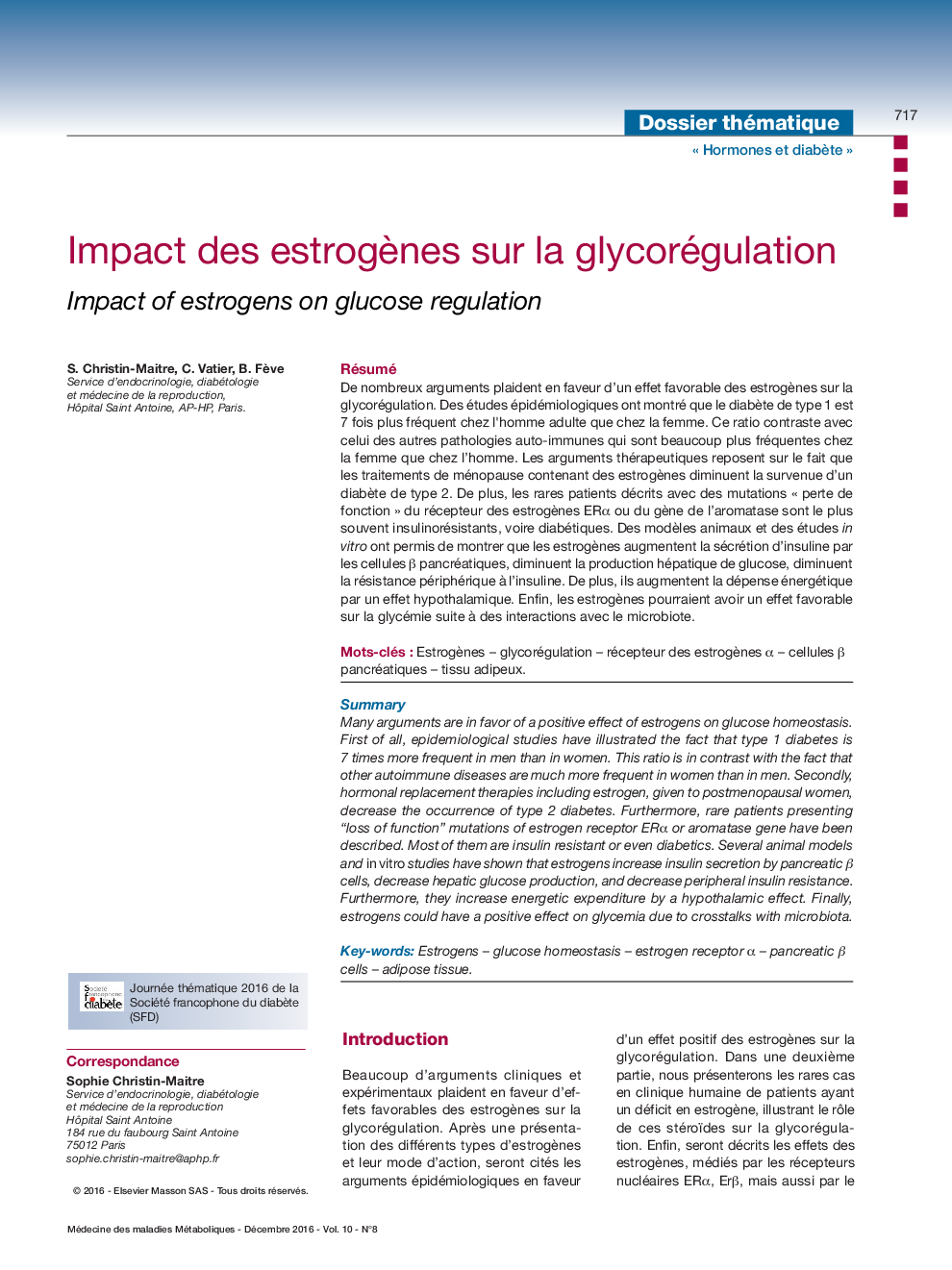| Article ID | Journal | Published Year | Pages | File Type |
|---|---|---|---|---|
| 8723556 | Médecine des Maladies Métaboliques | 2016 | 8 Pages |
Abstract
Many arguments are in favor of a positive effect of estrogens on glucose homeostasis. First of all, epidemiological studies have illustrated the fact that type 1 diabetes is 7 times more frequent in men than in women. This ratio is in contrast with the fact that other autoimmune diseases are much more frequent in women than in men. Secondly, hormonal replacement therapies including estrogen, given to postmenopausal women, decrease the occurrence of type 2 diabetes. Furthermore, rare patients presenting “loss of function” mutations of estrogen receptor ERα or aromatase gene have been described. Most of them are insulin resistant or even diabetics. Several animal models and in vitro studies have shown that estrogens increase insulin secretion by pancreatic β cells, decrease hepatic glucose production, and decrease peripheral insulin resistance. Furthermore, they increase energetic expenditure by a hypothalamic effect. Finally, estrogens could have a positive effect on glycemia due to crosstalks with microbiota.
Keywords
Related Topics
Health Sciences
Medicine and Dentistry
Endocrinology, Diabetes and Metabolism
Authors
S. Christin-Maitre, C. Vatier, B. Fève,
